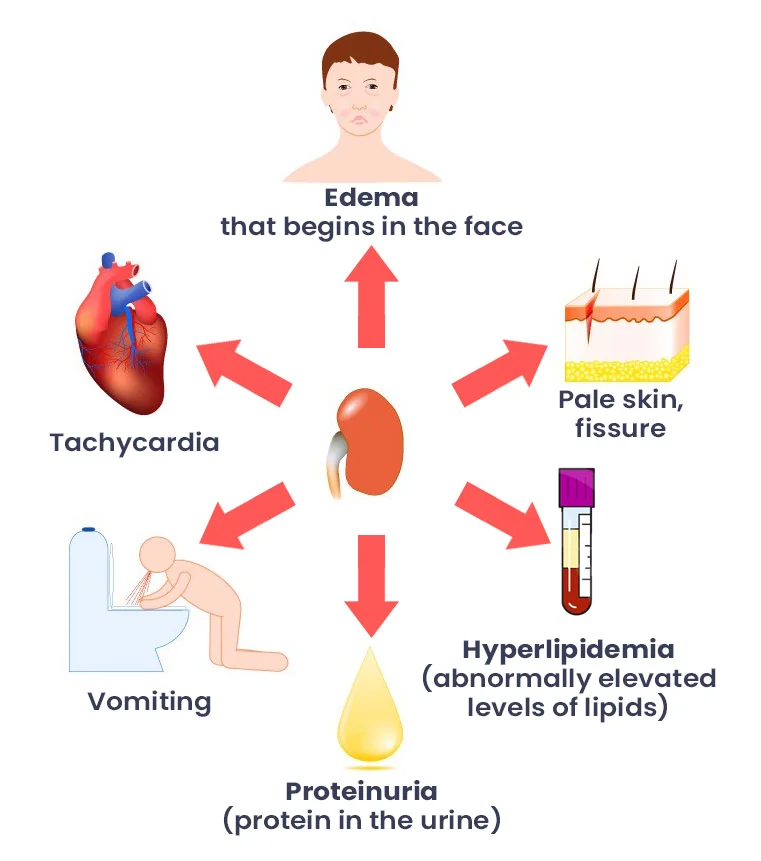Protect Your Kidneys – Expert Care for NSAID-Related Renal Disorders
Prevent & Treat NSAIDs-Induced Renal Problems with Expert Guidance
NSAIDs-Induced Renal Disease Treatment in Ludhiana – Expert Nephrology Care
Get the best NSAIDS Induced Renal Disease treatment in Ludhiana at Aastha Kidney & Super Speciality Hospital, our experienced team of doctors and specialists provides NSAIDS Induced Renal Disease Diagnosis and Treatment at an affordable cost in Ludhiana. For NSAIDS Induced Renal Disease treatment, You must consult our doctors, as they have excellent years of experience in this field.
Severe kidney damage was linked with the production of all the non-steroidal anti-inflammatory medications (NSAIDs).
Acute kidney failure due to NSAIDs
Two forms of severe kidney failure may be triggered by NSAIDs.
Acute kidney injury is a process of renal disease that occurs from clinically-asymptomatic renal function improvements to renal dysfunction and death. A significant kidney injury has been characterized by a gradual decrease over hours to days in the rate of glomerular filtration (GFR).
- Hemodynamically induced (e.g. pre-renal and/or severe necrosis of the tubes).
- Mediated immune response (e.g. severe interstitial nephritis).

Diagnosis and Analysis
The acute kidney damage caused by NSAID does not display any clear signs or symptoms. Acute kidney injury signs can be non-specific to the skin which can involve shortness of breath, exhaustion, discomfort, nausea. The signs of volume depletion may occur in patients who suffer from pre-renal injury including-:
- Tachycardia
- Absolute or postural hypotension
- Low jugular venous pressure
- Dry mucous membranes.
Interstitial nephritis patients may have systemic hypersensitivity characteristics including arthralgia, fever, and a pruritic-erythematous rash. There might also be eosinophilia.
Factors of pathology and risk
- The inhibition of COX-1 and COX-2 of NSAIDs can reversibly inhibit the formation of renal prostaglandins. Full inhibition exists in steady amounts, plasma concentrations.
- The dilation of renal afferent arteriole is caused by renal prostaglandins. The function is important when GFR production is decreased (i.e. not in young healthy people). It is crucial for preserving GFR. The use of NSAID in patients with other risk factors is therefore likely to have a greater effect on renal function.
- The effects of acute interstitial Nephritis on NSAIDs are unclear. However, cyclooxygenase hemming has been suggested to contribute to preferential arachidonic acid conversion into leukotrienes which could then activate T-helper cells.
Risk factors for NSAID induced acute kidney injury
Risk factor
Chronic hypertensive and atherosclerotic age (particularly age > 65).
Glomerular or renal insufficiency pre-existing
Decline in volume
- Depletion of true volume (i.e., salt or renal or loss of water, blood loss, diuretic use)
- Effectively decreasing volume (such as cirrhosis and cardiac insufficiency).
Application of ACE or ARB inhibitors.
The ‘triple whammy’ (ACE or ARB plus NSAID diuretic)
Effect
Renal arterioles reduction that may reduce their ability to dilate the renal afferent.
Renal afferent dilatation is probably necessary for GFR maintenance.
Reduces glomerular arteriolar pressure and enhances angiotensin II secretion
ACE and ARB inhibitors prevent afferent vasoconstriction of arteriole which is also significant in maintaining GFR.
| Diuretic can cause a decrease in volume. |
ACE is explained as an Angiotensin Converting Enzyme;
ARB is described as Angiotensin II Receptor Blocker
The most important risk factors for experiencing acute renal injury are pre-existing severe kidney disorder and increased age.
Treatment
After the withdrawal of NSAID therapy, renal function will recover in most patients. In interstitial nephritis patients with stopped NSAID therapy, steroids may help recovery. For these cases, the potential usage of NSAIDs will be discouraged.
Submit Your Phone Number for Contact

Aastha Kidney Hospital
Aastha Kidney & Super Speciality Hospital, founded by Dr. Neena Gupta and Dr. Sanjeev Gupta, is a leading multi-speciality hospital in Ludhiana.
Contact us
- +91 98534-70000
- +9198759-71408
- careaastha@gmail.com
- Registered Address: B-20-1197/1, Maya Nagar Road, Near Aarti Chowk, Krishna Nagar, Civil Lines, Ludhiana, Punjab 141001
Our Services
- 👨⚕️ Urology
- 🧬 Nephrology
- 🧑⚕️ Andrology
- 🩺 Laparoscopic Surgery
- 🫁 Pulmonology
- 🦴 Orthopaedics
